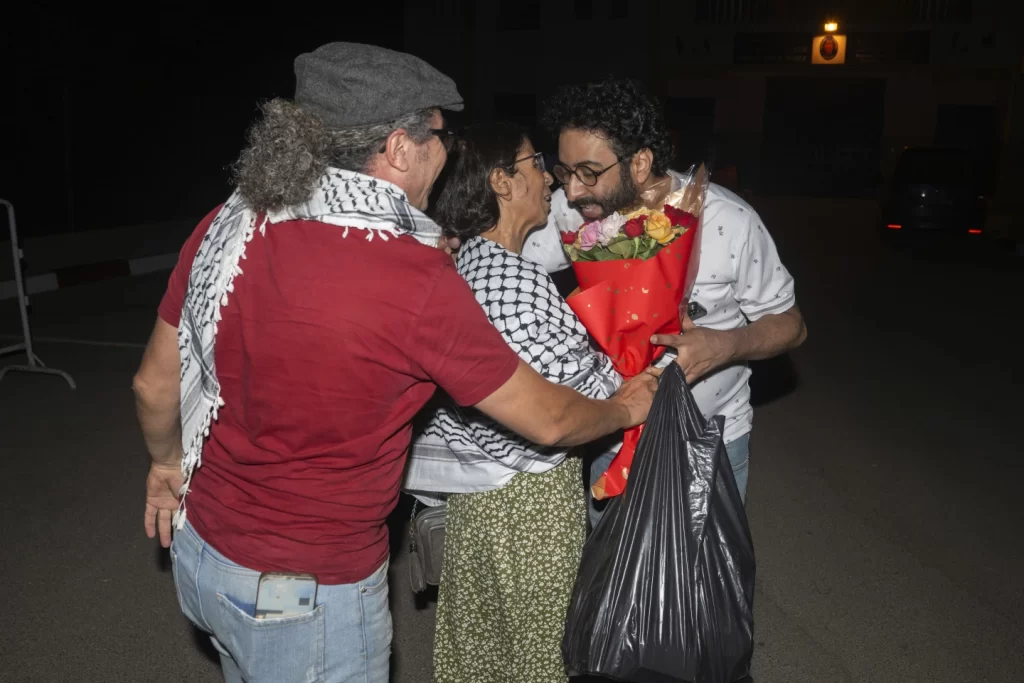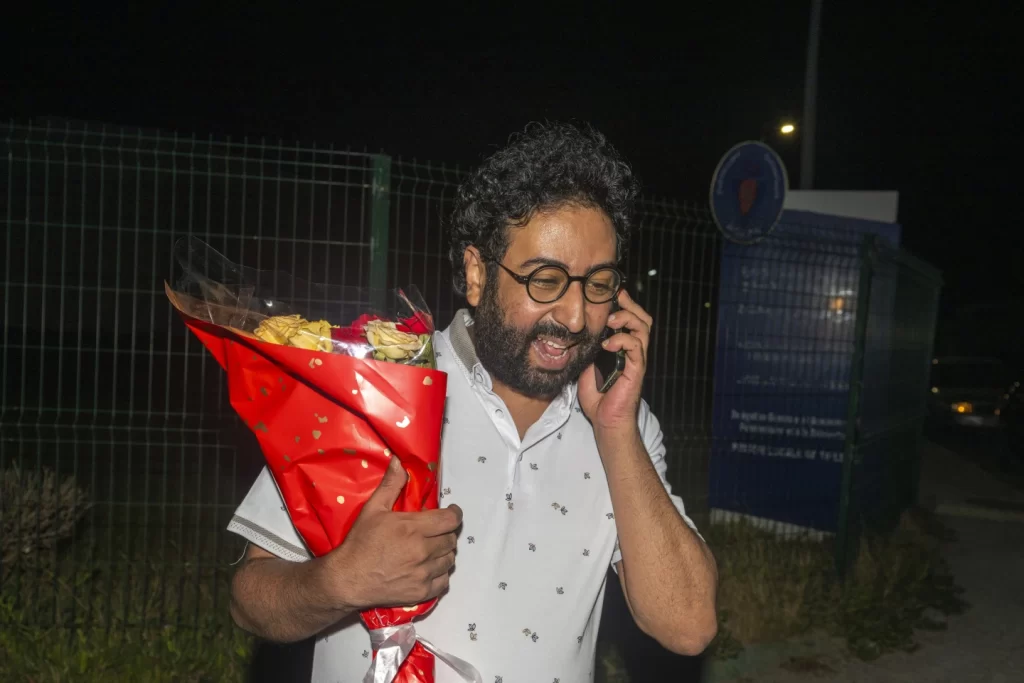Three prominent journalists in Morocco, – Omar Radi, Taoufik Bouachrine, and Soulaimane Raissouni – were released from prison on Monday after receiving pardons from King Mohammed VI. The pardons were part of a larger clemency initiative that saw 2,278 individuals granted freedom, coinciding with celebrations marking the 25th anniversary of the King’s ascension to the throne.

The journalists, who had been sentenced to lengthy prison terms on charges they vehemently denied as politically motivated, were freed from the Tiflet prison east of Rabat to a jubilant crowd of supporters. Their cases had become emblematic of concerns over press freedom and human rights in the North African kingdom.
Morocco’s Ministry of Justice announced the pardons, which are a constitutional power of the King as head of state. It’s important to note that while the pardons apply to the journalists’ prison sentences, they do not extend to civil penalties or monetary compensation ordered by the courts.

Human rights activists have welcomed the pardons while emphasizing that this move does not erase concerns about the judicial process that led to the journalists’ imprisonment. Fouad Abdelmoumni, a prominent human rights activist, expressed this sentiment on Facebook, writing, “Congratulations. Awaiting the others — and democracy,” alluding to other dissidents who remain incarcerated.
The cases of Radi, Bouachrine, and Raissouni had drawn international attention and criticism. The U.S. State Department, European Parliament, and numerous press freedom organizations had expressed concern over their prosecutions, which were seen by many as part of a broader crackdown on critical voices in Morocco.

Each journalist was convicted of sex-related crimes, which they and their supporters claim were fabricated to silence their reporting on corruption and abuse of power. Human rights groups, including Human Rights Watch, have accused Moroccan authorities of using such serious charges to intimidate and silence dissent.
The releases come against the backdrop of Morocco’s complex political landscape. While known internationally as a stable ally in counterterrorism efforts and a popular tourist destination, the kingdom has faced criticism for its treatment of journalists and political critics.

The pardons and subsequent releases have reignited discussions about press freedom and human rights in Morocco. While this move is seen as a positive step, observers note that it does not address the underlying issues that led to the journalists’ imprisonments in the first place.
As Morocco celebrates its national holiday, the release of these journalists serves as a reminder of the ongoing tensions between the state and critical voices within the country. The international community will likely continue to monitor the situation closely, watching for any signs of further reform or continued pressure on press freedom in the kingdom.



